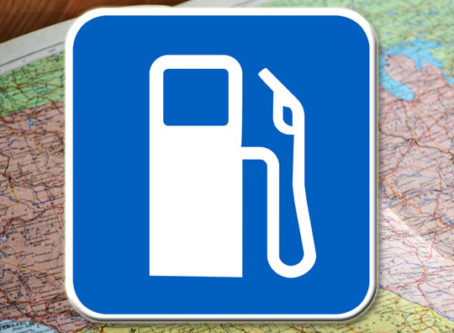States still pursuing tolls despite available federal funding
Despite billions of dollars in infrastructure federal funding, several states are still looking to move forward with toll projects.
To pay for large highway projects, state DOTs often turn to the private sector to front the money. A lack of funding is often cited as a reason for these public-private partnerships. However, a massive injection of federal dollars may not stop many projects already on the books.
In its state update, the Alliance for Toll-Free Interstates points to four states dealing with tolls.
“Despite overwhelming and outspoken opposition from a wide variety of stakeholders, some of these tolling projects are still moving ahead,” the Alliance for Toll-Free Interstates said. “Additionally, gas prices have been soaring, mainly due to Russia’s invasion of Ukraine and the global reaction to it.”
The Alliance for Toll-Free Interstates is monitoring four projects: I-10 Mobile River Bridge Bayway in Alabama; Pennsylvania’s Major Bridge P3 Initiative; Calcasieu River Bridge in Louisiana; and the Brent Spence Bridge linking Kentucky and Ohio.
Mobile River Bridge and Bayway toll project
Good news: Alabama’s Mobile River Bridge and Bayway project is abandoning initial plans of a truck only toll.
Bad news: Everyone must pay.
Still planning to move forward with the project, the Alabama Department of Transportation will charge a maximum toll of $2.50 or less on all passenger vehicles. However, truckers will pay $15-18, up from the original estimate of $10-15.
Discussions on costs for trucks of various sizes are ongoing. Additionally, there will be no public-private partnership.
ALDOT’s plans included a new six-lane Mobile River Bridge, a new Bayway built to current safety and longevity standards, and appropriate interchanges in Baldwin and Mobile counties.
The Alliance for Toll-Free Interstates points out that polls conducted in the Mobile area reveal 68% of residents do not want tolls on the Bayway. Grassroots opposition to the proposal has gained traction as well.
“Among the most vocal opponents of the tolling plan are those working in the trucking industry, as trucking companies in the area would be forced to incur rising transportation costs,” the Alliance for Toll-Free Interstates said in a statement. “Unfortunately, Alabama’s Department of Transportation has signaled its intent to go ahead with the tolling proposal.”
Major Bridge P3 Initiative tolls
In Pennsylvania, PennDOT is moving along with its controversial Major Bridge P3 Initiative. That is despite opposition from stakeholders, Pennsylvanians and state lawmakers.
Pennsylvania is looking into nine bridges across the state for possible inclusion in the project. PennDOT received approval to toll bridges in 2020. Immediately, the state went to work to exercise that authority.
Petitions, General Assembly bills and lawsuits from localities are not enough to stop the projects, which could begin as soon as August.
Calcasieu River Bridge
Louisiana claims to be short on cash to rebuild Interstate 10’s Calcasieu River Bridge in Lake Charles, so the state may turn to tolls instead. However, another funding mechanism may be possible.
Last July, Gov. John Bel Edwards signed a bill that shifts 30% of car and truck sales tax to a transportation fund for large projects, including the Calcasieu River Bridge. Some stakeholders claim that will not be enough money.
According to a survey commissioned by the Louisiana Motor Transport Association, half of voters said they would be less likely to vote for candidates who support the Calcasieu bridge toll.
Brent Spence Bridge
The Brent Spence Bridge between Cincinnati and Covington, Ky., made headlines in November 2020 after a fiery truck crash shut it down for six weeks. Both Ohio and Kentucky have considered tolls to pay for a second bridge. Not anymore.
In March, both governors stated they are seeking up to $2 billion in federal funding for a toll-free companion bridge.
“Expanding tolling networks on existing interstates means levying another tax on drivers who already pay taxes for interstate maintenance, diverting potential customers away from small businesses located near the tolled interstate, burdening non-tolled routes with additional traffic, and placing disproportionate levels of financial strain on low-income individuals,” the Alliance for Toll-Free Interstates said in a statement. LL









